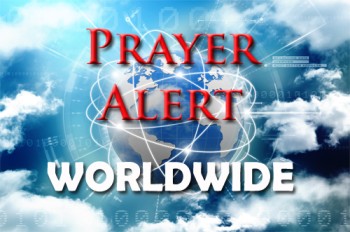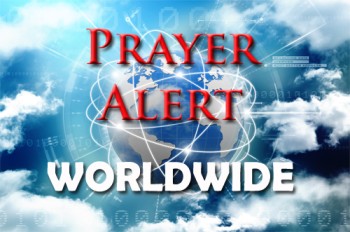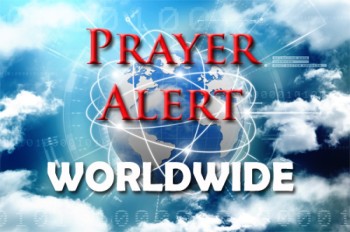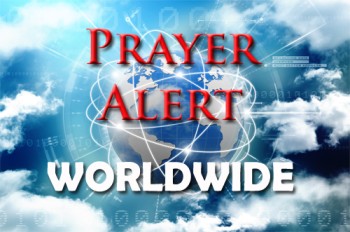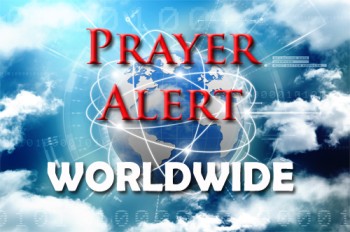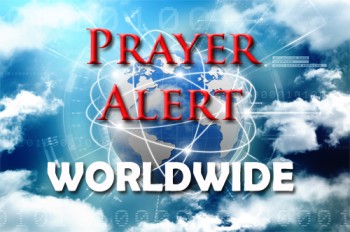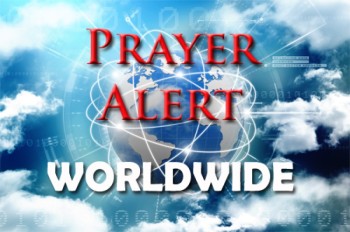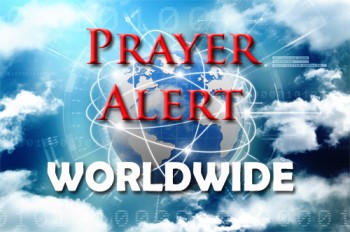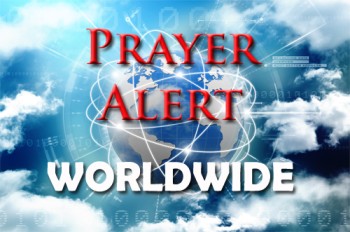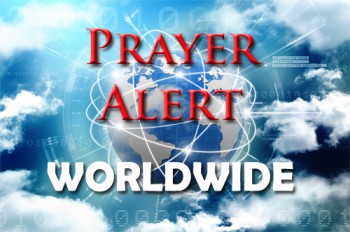Displaying items by tag: Latin America
Peru: president issues amnesty for hundreds accused of atrocities
President Dina Boluarte has signed a contentious law pardoning soldiers, police, and civilian militias accused or convicted of atrocities during Peru’s 1980–2000 armed conflict against Maoist rebel groups Shining Path and Tupac Amaru. The measure, despite an order from the Inter-American Court of Human Rights to suspend it, will release those over 70 and halt or overturn more than 600 trials and 156 convictions. Peru’s Truth and Reconciliation Commission estimates that there were 70,000 deaths and 20,000 disappearances during the conflict, with state forces responsible for significant abuses, including 83% of documented sexual violence cases. Human rights organisations and UN experts have condemned the law as a betrayal of victims and a blow to decades of accountability efforts. Critics warn it undermines justice for survivors of massacres, torture, and enforced disappearances, while supporters describe it as honouring those who fought insurgency. The law deepens debate over justice, reconciliation, and impunity in Peru’s fragile democracy.
Brazil: former president Bolsonaro put under house arrest
Brazil’s supreme court has placed former president Jair Bolsonaro under house arrest as he stands trial for allegedly plotting a coup to overturn the 2022 election won by Luiz Inacio Lula da Silva. Justice Alexandre de Moraes, citing violations of restrictions on Bolsonaro’s social media activity and political messaging, has ordered the measure. Bolsonaro, accused of leading an armed criminal group and attempting to abolish democratic rule, faces up to twelve years in prison if convicted. The prosecution links him to the January 2023 storming of Brazil’s congress and other institutions by his supporters. Bolsonaro denies all charges, calling the case a political witch hunt. The ruling has sparked political tensions, with Donald Trump’s administration imposing tariffs on Brazil and sanctions on Moraes, which Lula has called ‘unacceptable’. Bolsonaro’s movements are now restricted, and his communications have been seized; only close family and lawyers are allowed to visit. There have been widespread rallies to protest this decision: see
Brazil: police raid ex-president’s home
Brazil’s supreme court has ordered strict sanctions on former president Jair Bolsonaro amid an ongoing criminal trial accusing him of plotting to overturn the 2022 election. Police raided his home and headquarters, fitted him with an electronic ankle tag, and imposed bans on foreign contacts, embassies, and social media use. The court cited flight risk concerns, though Bolsonaro denied any intention to flee, calling the measures a 'supreme humiliation.' The USA has reacted controversially, with Secretary of State Marco Rubio revoking visas for Brazilian justices involved, labelling the trial a 'political witch hunt.' Bolsonaro’s close ties with Donald Trump and claims of US interference have sparked a diplomatic storm. Allegations include collusion with the USA to impose retaliatory trade tariffs. Meanwhile, he could face over 40 years in prison if convicted of orchestrating a coup, with charges also implicating his son. As tensions rise, the situation highlights deepening global political entanglements and ongoing challenges to democratic accountability in Brazil.
Suriname: first woman president faces challenges
Jennifer Geerlings-Simons has made history as Suriname’s first female president, elected amid political and economic turmoil. The 71-year-old physician and lawmaker was backed by a two-thirds parliamentary vote after inconclusive May elections and growing dissatisfaction with outgoing president Chandrikapersad Santokhi’s austerity measures; his administration has also faced corruption allegations. Geerlings-Simons, who ran unopposed, will assume office on 16 July along with her running mate Gregory Rusland. She inherits a nation burdened by debt, economic instability, and public frustration, but one with the hopeful prospect of offshore oil production starting in 2028. Her administration has pledged to stabilise state finances through stricter tax enforcement, but economists warn of a difficult path ahead, with debt repayments nearing $400 million annually. As Suriname approaches its 50th year of independence, the country (which is one of the continent’s poorest nations, with a rich ethnic tapestry) looks to Geerlings-Simons for leadership in a time of fragile transition and high expectations.
Colombia: reversing the migration trend
In the coastal town of Necocli, migrant families are now returning south after failed attempts to enter the USA, marking a reversal of a once-dominant northward migration trend. Harsh immigration policies under Donald Trump, including the withdrawal of the asylum app and increased military presence along the border, have left many stranded in Mexico or deterred from even attempting the journey. Some, like Luis Angel Yagua Parra, braved the deadly Darién Gap only to be forced back. Others, including a Venezuelan couple whose child was born in the USA, have left voluntarily, fearing deportation. Aid workers in Necoclí report a growing daily influx of returnees, but dwindling foreign support has led to closures of humanitarian organisations. Pastor Jose Mendoza’s food hall, struggling to meet rising needs, might have to close due to a lack of funding. For families like Marisela Bellorin’s, who have been homeless for months, survival is precarious. As the ‘American dream’ fades, many migrants are choosing new destinations such as Chile, in search of safety and stability.
Colombia: 57 soldiers kidnapped in rebel area
57 Colombian soldiers have been seized by civilians and armed rebels in the Micay Canyon area, a vital cocaine-producing area in the southwest. The first group was captured on 21 June during an army operation in El Tambo; then another platoon was surrounded by roughly 200 residents near El Plateado. General Federico Alberto Mejía called the incidents a ‘kidnapping’ by rebels who infiltrate local communities, acting under the command of a FARC dissident group that refused the 2016 peace accord. President Gustavo Petro, committed to peace, announced that the release of the soldiers is ‘imperative’ as tensions rise. The government is struggling to regain control of rural areas as splintered armed groups move to dominate territories abandoned by FARC after the peace agreement. This crisis has reignited fears across Colombia, evoking memories of the bloody cartel violence and political assassinations which plagued the nation in the 1980s and 1990s.
Brazil: offshore oil exploration auctions test Lula’s climate pledges
In a northern region of Brazil known as the Equatorial Margin, where the Amazon River meets the Atlantic, a major environmental and political debate is unfolding. After researching the possibility of offshore oil reserves, the government decided to hold auctions to sell exploration rights in this area. President Lula da Silva, known for his environmental pledges, including a promise of ‘zero deforestation’ in 2023, now supports allowing drilling ‘to fund our energy transition’ and bolster the economy. Critics argue this contradicts his public stance and undermines Brazil’s credibility as it prepares to host COP30. Environmental organisations and even the federal prosecutor’s office challenged the oil auctions, citing inadequate environmental reviews and community consultation. Despite their efforts, they went ahead, with major corporations like Chevron and Petrobras securing exploration rights. Brazil’s environmental agency had initially rejected drilling permits, but its decision was overruled by its own director under government pressure. The outcome reflects Brazil’s struggle to reconcile economic needs with ecological stewardship.
Argentina: supreme court upholds prison sentence for former president
Argentina’s supreme court has upheld a six-year prison sentence for former president Cristina Fernández de Kirchner on corruption charges, barring her permanently from public office. The ruling sparked protests in Buenos Aires, where her supporters accused the court of serving the nation’s economic elite. Fernández de Kirchner, who led Argentina from 2007 to 2015, was convicted in 2022 of directing irregular public works contracts to an ally. She denounced the decision as politically motivated and appealed, but the court stated that it was ‘based on the abundance of evidence produced’, and said that her conviction did nothing more than protect Argentina’s democratic system. President Javier Milei, her fierce political rival, welcomed the verdict. The decision seems to mark the end of a significant chapter in Argentine politics, just days after Kirchner had launched a campaign for the Buenos Aires legislative elections in September. She has five days to turn herself in to the authorities, but her lawyer has requested house arrest due to her age (she is 72).
El Salvador: three colonels convicted for 1982 murder of Dutch journalists
Three retired colonels have been sentenced to fifteen years in prison for orchestrating the 1982 killings of four Dutch journalists during El Salvador’s civil war. They are former defence minister Jose Guillermo Garcia (91), Francisco Moran (93), and Mario Adalberto Reyes Mena (85). The journalists had been filming with leftist rebels when ambushed by soldiers in a planned military trap. A 1993 UN truth commission had previously identified the ambush as orchestrated by Reyes, who remains in the USA despite an extradition request. Garcia and Moran are currently under police watch in a private hospital. The case was revived in 2018 after El Salvador's supreme court struck down a postwar amnesty. Advocacy from the victims’ families and international bodies, including the Dutch government and EU, pressured authorities to bring long-delayed justice.
Colombia: an alternative approach to fighting cocaine production
Colombia is pursuing a peaceful alternative to its enduring drug crisis by offering payments to farmers who agree to uproot coca (the plant used to make cocaine) and replace it with legal crops like cocoa and coffee. About 4,000 families have joined the $14.4 million programme, despite risks from armed groups that profit from cocaine and the uncertainty of sustaining income through legal farming. The government, under president Gustavo Petro, is aiming to eliminate coca from 45,000 hectares in conflict-heavy regions such as the Micay Canyon. However, since he took office in 2022 cocaine production has soared, driven by sustained demand worldwide, and his efforts to negotiate with armed groups, rather than using military confrontation, have faltered. Now the Trump administration is reassessing Colombia’s status as a partner in the anti-drug campaign, threatening to curtail millions of dollars in military aid.
